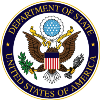Four Worthy Multilateral Investments for 2017 and Beyond
By: Tracey A. Jacobson, Principal Deputy Assistant Secretary of State for the Bureau of International Organization Affairs.
For over seven decades, the United States has played a leading role in constructing and adapting multilateral institutions to promote peace, advance shared values, and save lives.
Today’s global challenges demand institutions that are nimble, effective, and accountable. Infectious diseases, human rights crises, violent extremism, climate change, and other challenges demand both a shared sense of responsibility and the means to act upon it. In recent years, we’ve expanded and deepened our leadership at the United Nations (UN) and in other international organizations to promote collective action and bolster those very means. As noted in the Secretary’s recent exit memo, U.S. leadership at the United Nations has been instrumental in advancing major U.S. national interests and priorities. The negotiation and passage of major international agreements such as the 2030 Sustainable Development Agenda, the Paris Agreement and the Iran Nuclear Deal would not have been possible without our leadership and dedicated commitment to the multilateral system, and the means to bring together necessary stakeholders.
Here we’re revisiting four important multilateral investments made by the Obama Administration — investments that continue to yield real-world benefits.
Pushing for Continual Improvement of the UN Human Rights Council
In the years since the United States joined the Human Rights Council in 2009, it has dramatically improved its track record in carrying out its fundamental mission of protecting and promoting human rights around the globe. While it remains an imperfect body — it has many states with poor human rights records as members and has demonstrated a persistent (though diminished) bias against Israel — the Council is now shining a light on the worst violations of human rights, including in places such as Syria, North Korea, and Iran, promoting the protection of women and girls, recognizing the central value of freedom of expression and helping create space for civil society to hold governments to account. There is no doubt that U.S. leadership and diplomatic muscle have contributed to this change in orientation and performance, a fact reinforced by the October 28 reelection of the United States to the Council. Read Assistant Secretary Sheba Crocker’s full blog on our record at the Council.
Tackling the Greatest Humanitarian Challenge of Our Time
Today, we are witnessing the greatest crisis of mass displacement since World War II, with more than 20 million refugees worldwide, more than 4.8 million fleeing the Syria conflict alone. At last year’s session of the UN General Assembly (UNGA), two big events — the UNGA Plenary Session on Large Movements of Refugees and Migrants and President Obama co-hosted Leaders’ Summit on Refugees — shaped new and significant commitments to address the crises. Now the international community must make those commitments real. Learn more from Deputy Assistant Secretary Erin Barclay on why these refugee events mattered and find out details about Refugee Summit Outcomes.
Investing in the Long-Term Utility of UN Peacekeeping
In 2015, President Obama co-hosted the Leaders’ Summit on Peacekeeping, building on a high-level international meeting on peacekeeping hosted by Vice President Biden in 2014. This heavyweight leadership investment made clear the importance the United States places on the continued evolution of UN peacekeeping, to which the United States contributes more than $2.4 billion annually. Why such an investment? The United States recognizes UN peacekeeping as an important component of the international peace and security architecture and benefits from its contributions to our collective security interests. UN peacekeeping is also a mechanism for sharing the costs and burdens of addressing conflict-related crises.
Since the 2015 Peacekeeping Summit, in September 2016, the United Kingdom convened the first-ever meeting of Defense Ministers and Chiefs of Defense focused on peacekeeping reform. Together, the U.S. and UK events resulted in UN Member State commitments of over 50,000 new troops, police, and enablers that, when deployed, will contribute to the effectiveness of one of the United States’ and the world’s primary tools to prevent and end armed conflict. These investments bring us closer to a reformed and strengthened peacekeeping apparatus. To learn more, read Deputy Assistant Secretary Tori Holt’s blog on the importance of our peacekeeping investment and Colleen Traughber’s piece on peacekeeping done right: Cote d’Ivoire, a success story.
Sustaining the Positive March of LGBTI rights at the UN
Over 70 countries still criminalize same-sex relations, and in a number of those countries lesbian, gay, bisexual, transgender, and intersex (LGBTI) individuals face the possibility of the death penalty. That translates to hundreds of thousands of people who cannot live openly and freely, and if they do choose to be open about their sexuality or gender identity, they are subject to harassment, persecution, and violence. The Obama administration has made an unprecedented commitment to addressing this trend globally. The United States has engaged robustly at the UN and various other international organizations over the past eight years to ensure that the human rights of LGBTI persons are protected as part of our broader work to promote human rights. Read Wes Reisser’s blog to learn how we’ve engaged on LBGTI issues through the UN.
These are just a few, perhaps lesser known, examples of how leveraging the multilateral system in pursuit of our foreign policy interests can have an impact. The suite of shared challenges facing the international community will not diminish in the coming years, and our continued, active engagement can build on progress to date.
This entry originally appeared on DipNote, the U.S. Department of State’s Official Blog.
